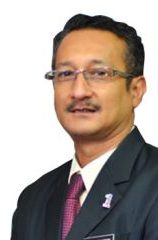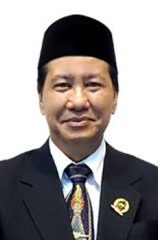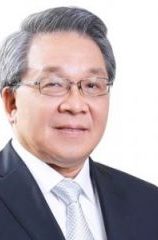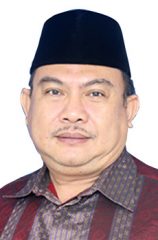Highlighting a workforce ill-equipped with the knowledge and skills necessary to be innovation driven. A country facing a multitude of challenges such as competitiveness. Growth stalling and lacking in the value-added activities within the economy to allow enough creation of the wealth, consumption and the jobs necessary to make sure an improved standard of living for its people.
Indonesia is also having difficulty tackling the classic hurdles stymieing innovation, including red tape, a low level of human capital, weak development of R&D, and a lack of awareness in using patents. And regarded as weak in terms of public and private sector institutions ability to innovate.
There is no doubting the central role innovation plays in economic development. Which has been pivotal to the growth dynamics of other countries that have developed successfully. Innovation has provided the foundation for new businesses, new jobs, and productivity growth.
Indeed, the single most important motor of economic growth and development having been knowledge-intensive products and the services that are set to increasingly dominate the world economy. Thus Indonesia’s future success will only be predicated on its ability to create an environment that stimulates, facilitates and supports innovation.
Innovation having being defined as the ability to introduce goods and services. As one of the world’s largest economies, in terms of both GDP and population and one of the world’s largest democracies. Indonesia’s large and young population needs to strive to be an exemplar for the innovative, entrepreneurial mentality that will ensure its future as a world economic leader.
How will Indonesia address its numerous shortcomings and pilot innovation and show what the country can achieve through the re-orientating its educational institutions and organs-of-state to improve innovative and entrepreneurial endeavour? Is Whilst also enhancing public & private sector collaborative R&D in an environment more conducive to commercial exploitation?
First, it is important to recognise that an innovation-based economy requires human resources with a high mastery of science and technology. Those who can create the technological innovations that have applications in the industrial and business fields.
Thus what is needed is a set of institutions who can collectively and independently contribute to the development and dispersion of new technologies. Engendering a framework within which the Indonesian government can plan and implement policies to influence the innovation process. Both on the supply and the demand side where the former refers to those who produce technologies, such as academia from Universities and R&D professionals from research institutions whilst the latter refers to those people who transfer and make use of those technologies within industry.
The Indonesian Government has sought to strengthen R&D capability in recent years. Announcing the establishment of 100 national science and technology parks. The Research and Technology and Higher Education Minister Muhammad Nasir saying that they believed that the program would inspire greater science and technology innovation, yet the administration of President Joko Widodo has so far failed to convince Indonesian academic communities that its policies will be sufficient to boost the research and innovation that will lead to economic growth.
The productivity of academic paper publishing by Indonesian academics and researchers remains low and far fewer than other ASEAN countries such as Malaysia, Singapore and Thailand and only marginally ahead of Cambodia.
There is also a dearth of international patent filing and Indonesian Universities themselves seem to have a tendency towards developing their academic programs in line with what the market wants rather than research. As well as the lack of focus and determination to be a centre of excellence in research, many academics lacking enough time to conduct research due to high teaching loads and low research funding.
The Jokowi administration seemingly wants to continue pursuing old policies and neglecting progressive solutions that might propose a transformational change to boost research and innovation.
What should be instituted to redress this is a new policy framework to help guide policymaking over investment, create markets, and help move Indonesia towards the triple-helix innovation concept. Whereby government, academia, and the private sector each have critical roles to play to support innovation and foster closer cooperation between all three strands that can lead breakthroughs and innovation success.
Researchers and students at Universities producing innovations, the private sector creating business applications for those innovations and the government establishing the policy environment for the innovators to thrive. Whilst Indonesian Universities have to become more entrepreneurial and seek partnerships with the private sector to boost research and development and involve students in cutting-edge research.
Dr Ir. Kadarsah Suryadi Rector of the Institut Teknologi Bandung (ITB) told FDI Spotlight, “Placing an emphasis on research means excellence in innovation, which means research and the findings through it does not remain on paper. We want to be implementing the findings in industry and business, which further encourages our students to push themselves to get their work and innovations published and shared.”
A stellar example of this has been the Geothermal Capacity Building Program, a partnership between the University of Southern California, The Bandung Institute of Technology and Star Energy a private Indonesian geothermal company. Whose program conducts seminars on geothermal technologies, provides scholarships to students, and creates opportunities for young Indonesians to work alongside and learn from experts from American and Indonesian companies.
Although such partnerships are the exception and every Indonesian University should consider about how its faculties can partner with the local private sector to create similar partnerships that will fund university research, train students and drive the innovation that will create jobs in districts and provinces across Indonesia.
Indonesian R&D also lacks access to venture capital, a critical element of any innovative economy and access to mentorship, connections and other much-needed intangibles that will aid Indonesian startups in bringing their ideas to market, scale their businesses and join the global economy.
Thus improving human resources and the national capabilities in science and technology has to form a key pillar of Indonesia’s master plan to speed up and expand its economy, helping shift it from a resource-based economy and that will bring Indonesia up the value chain in a wide range of sectors with the help of home-grown innovation and its vast pool of human resources.
The Indonesian Government’s attention should focus on enhancing the national science and technology system, such as within the state institutes including, the Indonesian Institute of Sciences, (LIPI) the Agency for the Assessment and Application of Technology, (BPPT) The National Nuclear Energy Agency (BATAN) and the National Institute of Aeronautics and Space (LAPAN).
Dr. Sofyan Anif of Universitas Muhammadiyah Surakarta (UMS), explained, “We want to have mutual collaboration with industry. We want to work together with businesses to promote innovation. Our strategy is also maintaining good communication with the government because they create the policies and rules that affect our research. In many cases, innovations cannot be implemented because the rules forbid it or because there is no government policy that enables its implementation.”
Meanwhile the Indonesian business innovation Centre (BIC) – who since its establishment in 2008 by the Research and Technology and Higher Education Ministry – has lacked both the medium and long-term vision in acting as an intermediary agency for academics, business entities and governmental institutions.
Rather than bringing together researchers, innovators and businesses and equipping them with the skills, technical resources, knowledge and financial acumen to forge a holistic and coordinated national innovation policy framework. The BIC’S mandate should be revised with the institution instead acting as a catalyst at the centre of innovation circles to accelerate economic growth and playing the role of bridge builder collecting and empowering all stakeholders across academia, businesses and government.
Furthermore, startups need access to talent, so whilst Indonesia has lots of technology talent the technology sector still suffers from a talent deficit and as technology companies grow finding talented engineers, coders, and other tech professionals is a constant challenge and will continue to be if Indonesia does not increase the number of students pursuing higher education.
The Indonesian government should prioritise investment in human resource development necessary to building a critical mass of well-educated, and well-trained workforce, essential for the advancement of their capacity in R&D and innovation.
By building an innovative ecosystem in which the higher education institutions play a crucial role in not only providing education and training but also acting as knowledge factories to support industry and promoting creation of further R&D facilities, including incubators, tech-parks with the goal of leveraging universities as part of a knowledge infrastructure to attract foreign direct investment (FDI) from both multinational companies and to generate local knowledge-intensive industries.
As Dr. Sofyan Anif of UMS went on to explain, “In many cases, innovations cannot be implemented because the rules forbid it or because there is no government policy that enables its implementation. For example, we have produced research in biogas. Because the government has no program for biogas energy our research into finding biogas-rich areas cannot be used. If we maintain a good relationship with the government we can work on creating an environment where policy and research complement each other.”
Having recognised the challenges posed by an education system that is struggling to equip its students for the fast-changing demands of the global economy. Without these progressive actions and the willingness of the government to fix past failures Indonesia will not move forward on the technology production frontier and will stay as consumers of research and innovation as opposed to emerging as a key player.








